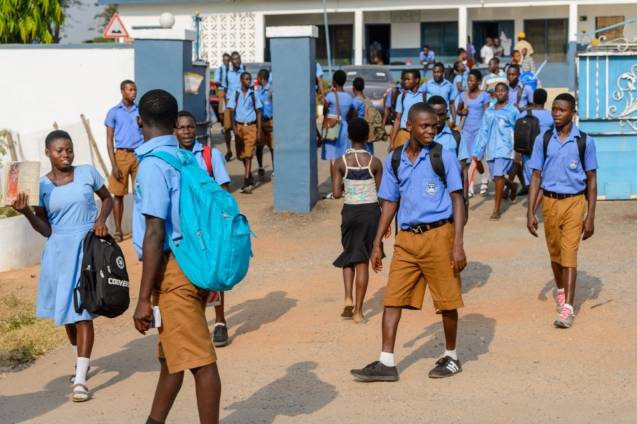Ghana Implements New High School Curriculum to Enhance Holistic Education
On November 4, the Ghanaian government launched a reformed curriculum for Senior High Schools, introducing significant changes aimed at fostering character development and preparing students with skills for the 21st century. This new curriculum replaces the previous model, focusing on providing students with well-rounded education and practical competencies for the modern world.
Under the new curriculum, students are required to take between seven and nine subjects, categorized into four major groups that allow for greater flexibility and specialization. Reginald Quartey, Acting Head of Curriculum Development at the National Council for Curriculum and Assessment (NaCCA), explained that the revamped curriculum seeks to develop not only cognitive skills but also social and behavioral competencies, incorporating values and ethics alongside academic learning.
The curriculum's structure now groups subjects into four main clusters, allowing students to pursue areas that align with their career interests. Group A includes core subjects that all students must take. For science students, these now include separate courses in physics, chemistry, and biology, replacing the single general science course. Group B offers foundational subjects relevant to various disciplines. Group C contains advanced subjects such as additional mathematics, food and nutrition, and electronics, catering to students who wish to expand their knowledge within specific fields. Group D provides elective options outside of core science subjects, including economics, history, Ghanaian languages, and religion, enabling students to explore broader academic interests.
Professor Yayra Dzakadzie, Director General of NaCCA, shared that these changes come after extensive consultation with educational stakeholders, including teachers, parents, and policymakers, to ensure a balanced approach that benefits all students. "We wanted a curriculum that prepares students with life skills beyond academics—one that shapes character, resilience, and adaptability," Dzakadzie explained.
The government’s move aligns with broader educational reforms seen in other nations, where curricula are evolving to address the rapid changes in the global workforce and societal needs. The new curriculum also emphasizes practical skills and competencies necessary for students’ success in diverse fields, aiming to produce graduates who are adaptable and socially responsible.
While the new curriculum has been widely welcomed, some concerns have been raised about the pace and logistics of implementation. Members of the Education Committee have expressed concerns over being left out of the consultation process. However, proponents argue that the reform is a timely response to the demands of an ever-evolving job market and a society that increasingly values multifaceted skills and critical thinking.
As Ghana embarks on this new educational path, the hope is that these changes will better equip students to meet the challenges and opportunities of the modern world.
Source: MyJoyOnline.com



No comments yet
Be the first to share your thoughts!